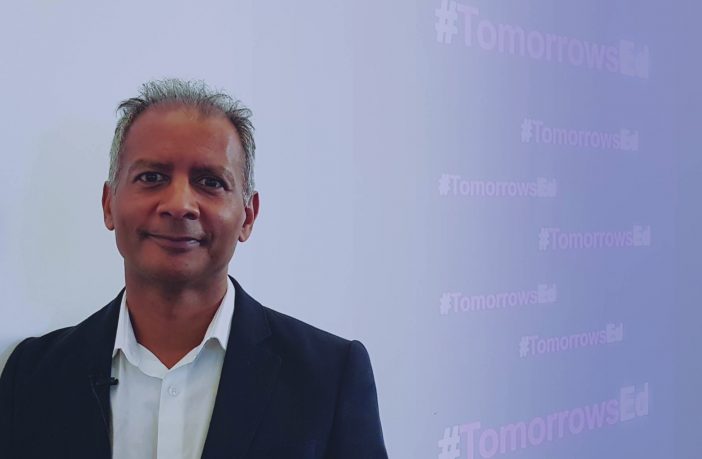Professor John Domingue, Director of the OU’s Knowledge Media Institute, discusses developments in technology which he sees impacting on education in the long and short term as part of our ‘future of education’ campaign.
He also talks about what the OU is doing in terms of its research into new technology, as well as some exciting future predictions on how students in the future could study.
Data
One of the key technologies in the future of education is going to be data. It’s data that drives the AI systems based on machine learning. In the future we envisage it’ll be something like an educational data space. Imagine with permission, making versions of student data available for the students to get personalised learning, but also automatically linking their data to data associated with jobs.
De-centralised data
The web has been a great success and it provides services that permeate many many activities in human existence, but there are some issues which have come up which have been highlighted in scandals, such as the scandal with Facebook and Cambridge Analytica, and that is that there are a small number of companies that hold a lot of data. So Facebook, every time you carry out some activity on Facebook, all of that data goes to the company and then they use it for advertising and other things which generate profit. So there’s been a move within the technology community to decentralise. Can we decentralise the data, so that the data stays with users and no longer moves to the central power-brokers? De-centralised data.
There are various technologies now for decentralising the data, and one is a blockchain. A blockchain is the technology which drives bitcoin, which you may have read about, the cryptocurrency. Now with a blockchain everyone who somehow plays in the space, every node on a network, has a complete copy of the data, so there’s no central control and the blockchain acts as a common one global source of truth. At the OU we’ve been using blockchain to house student accreditation and also micro-accreditations so students can get badges and certificates, and they’re no longer actually owned or controlled by the Open University, but by the students themselves.
Using the tech behind Bitcoin
A second thing I see happening is around micro-accreditation, actually based on blockchain technology which underpins Bitcoin, but with this we made be able to accredit more things that students do. So, for example, if a student is posting online in a forum and that’s helping other students, or they interact with students in different ways online, they may get a reputational credit for this and eventually that would turn automatically into badges, and then they could carry that as part of their CV for enhancing their future employability.
What we’re doing at the OU
We’re producing a tool which will allow students to personalise the material that’s sent to them online. So they’ll be able to move paragraphs around, highlight material that’s online, and add footnotes for themselves, or other material on top.
And we’ll be doing that in the short to medium term.
Longer term, we want to put an AI system on top of this. So using machine learning we’ll learn what types of annotations and changes our students make to materials, and also how successful were those students. So somehow trying to learn, did it help the students a lot? And then we automatically pass on that learning to future students. So future students may get an option – do you want us to try and personalise this learning material for you automatically? And then the material may be slightly re-structured, elements may be highlighted, based on what AI programmes have learnt from a previous student’s interaction.
Learning Analytics
Learning analytics is looking at the behaviour of Open University students. So the easiest way to think about this is to imagine that the students are playing a game of chess. So if you’re playing a game of chess you make moves. Now, some of those moves will enable you to win the game, other moves will not. Now, our Open University students every week, they make a move – they may do nothing, they may read some material online, they may watch a video, they may take a quiz. Some combination of those moves over the weeks lead to students passing the course, others lead them to dropping out or failing. So some of our largest courses have one or two thousand students, and we look at all the moves each of those students carried out every week, and then when we’re looking at the students in the current presentation of the course, we compare those moves to students who took the course previously, and then we predict if a student is going to pass a course, or not pass a course.
Institute of Coding
The OU is very very excited to be involved a new initiative from the government called the Institute of Coding. So this has 20 millions pound’s worth of funding and a 40 million pound budget overall. The problem that we’re addressing is training computer scientists. So you will read in the news that AI systems are becoming more important. You may read about machine learning. You may read about ‘the internet of things’. So the need for people to be able to code and produce computer programmes is becoming more and more prevalent. So let me take one example – a modern car has over 100 million lines of code and this will grow to two to three hundred million lines of code in the near future. In the UK we produce around 9,000 new computer science graduates every year, whereas we need around 30,000 graduates instead. So the institute of coding is aiming to address this and the OU is leading one of the 5 main themes on University learners.



